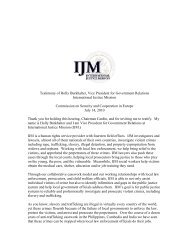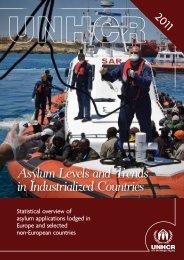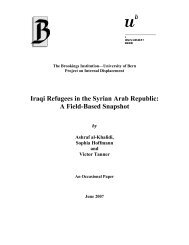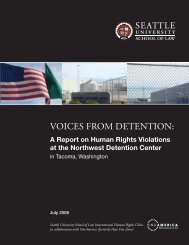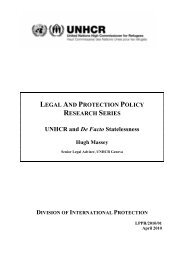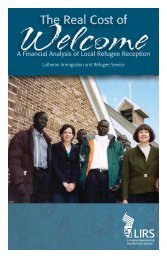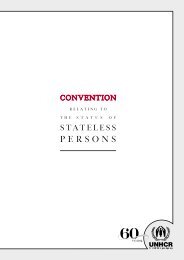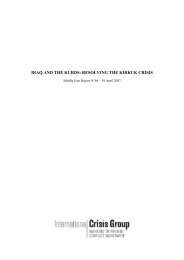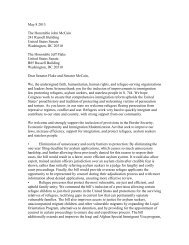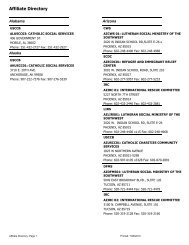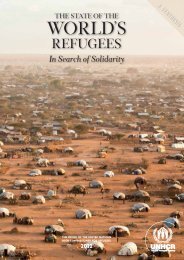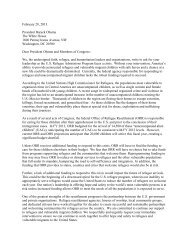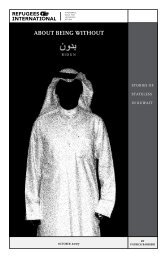Preventing and Reducing Statelessness - UNHCR
Preventing and Reducing Statelessness - UNHCR
Preventing and Reducing Statelessness - UNHCR
Create successful ePaper yourself
Turn your PDF publications into a flip-book with our unique Google optimized e-Paper software.
not resident in the State when they attain majority, provided certain other<br />
conditions are met.<br />
><br />
Measures to avoid statelessness due to deprivation of nationality<br />
Articles 8 <strong>and</strong> 9 of the 1961 Convention deal with the deprivation of nationality.<br />
States may not deprive any person of their nationality on racial, ethnic,<br />
religious or political grounds. Deprivation of nationality that results in statelessness<br />
is also prohibited, except where the individual obtained nationality<br />
by misrepresentation or fraud. States may retain the right to deprive a person<br />
of his or her nationality even if this leads to statelessness where he or she<br />
has committed acts inconsistent with a duty of loyalty or has made an oath<br />
or formal declaration of allegiance to another State. In deciding whether to<br />
deprive an individual of his or her nationality, the State should consider the<br />
proportionality of this measure, taking into account the full circumstances of<br />
the case. Due process guarantees need to be respected throughout the procedure<br />
regarding deprivation.<br />
><br />
Measures to avoid statelessness in the context of State succession<br />
State succession, such as the cession of territory by one State to another <strong>and</strong><br />
the creation of new States, can lead to statelessness unless proper safeguards<br />
are in place. Avoidance of statelessness in such cases is essential to promoting<br />
social inclusion <strong>and</strong> stability. Article 10 addresses the specific context of State<br />
succession <strong>and</strong> asks States to include provisions to ensure the prevention of<br />
statelessness in any treaty dealing with the transfer of territory. When no treaty<br />
is concluded, the State(s) involved shall confer its/their nationality on those who<br />
would otherwise be stateless as a result of the transfer of territory.<br />
CDoes the 1961 Convention require States to adopt the jus soli Does<br />
does the 1961 Convention require States to adopt the jus soli doctrINe-<br />
N<br />
o. The 1961 Convention does not compel States to confer nationality to<br />
all children born on their soil (jus soli doctrine) or to all children born<br />
to one of their nationals (jus sanguinis doctrine). It recognises the legitimacy of<br />
both birthplace <strong>and</strong> descent as criteria for acquisition of nationality at birth.<br />
The Convention therefore contains safeguards to avoid statelessness based on<br />
both doctrines. Where a child would otherwise be stateless <strong>and</strong> has a link<br />
based on birth on the territory or to a national, the 1961 Convention requires<br />
States Parties to grant nationality. Such conferral of nationality may be made<br />
subject to a number of additional conditions.<br />
P r e v e n t i n g a n d R e d u c i n g S t a t e l e s s n e s s 5



